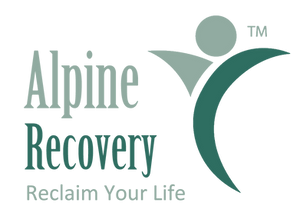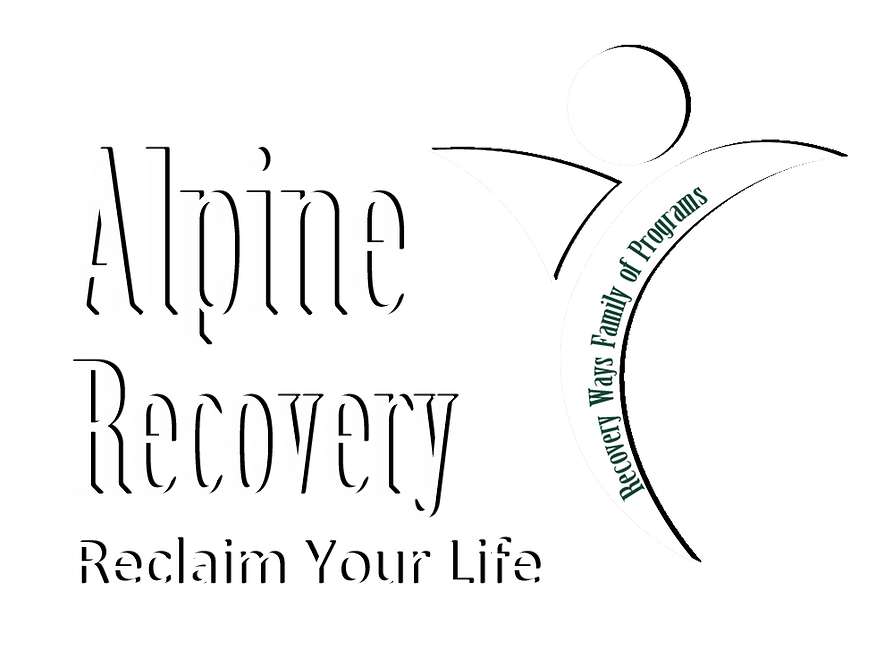Outpatient Alcohol Treatment in Everett
Recovering from alcohol addiction is a challenging and deeply personal journey that requires courage, commitment, and the right support. For many individuals, outpatient alcohol treatment in Everett offer a lifeline, providing professional guidance and a supportive community to foster lasting sobriety. These programs are specifically designed to meet the unique needs of individuals seeking flexible but effective care, making them an excellent option for those who want to maintain their daily responsibilities, such as work or family commitments, while receiving treatment. Outpatient programs offer a range of services, including counseling, group therapy, and educational sessions, all aimed at equipping individuals with the tools and strategies needed to build a healthier, alcohol-free future. This blog dives deep into what outpatient alcohol treatment entails, exploring the services offered, the benefits of this approach, and the ways it empowers individuals to take meaningful steps on their recovery journey. Whether you or a loved one is considering outpatient treatment, this guide will serve as a valuable resource to provide clarity and help you make an informed decision about the next steps. Recovery is not a one-size-fits-all process, and understanding your options is the first step toward a brighter, healthier future.
What is Outpatient Alcohol Treatment in Everett?
Outpatient alcohol treatment in Everett differs significantly from inpatient rehabilitation. It allows participants to continue their daily routines—such as work, school, or family responsibilities—while participating in structured therapy and counseling sessions. These programs are usually less restrictive than inpatient alternatives, making them an attractive option for those who cannot commit to full-time residential care. Yet, they provide critical treatment components like individual therapy, group counseling, education, and relapse prevention strategies that are essential for recovery. For the Everett community, outpatient alcohol treatment programs incorporate a holistic approach to healing, focusing not just on sobriety but also on improving physical, mental, and emotional well-being.
The Key Features of Outpatient Alcohol Treatment in Everett
1. Tailored Therapy and Counseling
One of the hallmarks of outpatient treatment is access to personalized therapy sessions, tailored to meet the unique needs of each individual. These sessions are designed to address the underlying causes of addiction, such as unresolved past trauma, difficult life experiences, or co-occurring mental health conditions like anxiety or depression. Therapists often use evidence-based practices such as Cognitive Behavioral Therapy (CBT), which focuses on identifying and changing negative thought patterns, Dialectical Behavior Therapy (DBT), which emphasizes emotional regulation and interpersonal effectiveness, and Motivational Interviewing (MI), which helps individuals find their internal motivation to change. Through these approaches, individuals learn to develop healthier thought patterns, cope more effectively with triggers, and build essential skills to prevent relapse. This combination of targeted support and practical tools lays the foundation for long-term, sustained recovery and empowers individuals to regain control of their lives.
2. Engaging Group Sessions and Community Support
Addiction can be isolating, leaving individuals feeling alone in their struggles. Group counseling offers a safe and non-judgmental space where people can connect with others who share similar challenges. These sessions create a supportive community where members can exchange personal stories, learn new coping mechanisms, and provide encouragement to one another. Whether it’s through traditional support systems like Alcoholics Anonymous (AA), which follow a 12-step program, or alternative approaches such as SMART Recovery, which focuses on self-management and cognitive behavioral techniques, this sense of peer connection is often a vital part of achieving and maintaining recovery. By fostering mutual understanding and accountability, group counseling reminds individuals they are not alone and that progress is possible with the help of a compassionate community.
3. Educational Workshops
Understanding the science of addiction empowers individuals to take control of their recovery by providing them with the knowledge they need to make informed decisions about their journey. Educational workshops offered by Everett treatment programs delve into topics such as the biological and psychological factors behind addiction, how it affects the brain, and strategies for long-term recovery. These workshops aim to equip participants with practical tools and a deeper understanding of the challenges they face, fostering confidence and resilience throughout the recovery process.
- The psychological and physiological effects of alcohol abuse, including its impact on mental health, cognitive function, and long-term physical health risks such as liver damage, heart disease, and addiction.
- Practical strategies for managing stress and navigating emotional triggers in daily life
- The long-term health benefits of sobriety, including improved mental clarity, better physical health, stronger relationships, and a reduced risk of chronic illnesses.
These workshops provide individuals with the tools and knowledge they need to make informed choices about their journey, empowering them to better understand their options and solidify their commitment to long-term recovery and personal growth.

4. Relapse Prevention Strategies
A key element of outpatient programs is relapse prevention planning, which helps individuals maintain their progress and avoid returning to old patterns. These strategies are designed to identify triggers, develop healthy coping mechanisms, and create a personalized plan for long-term success. They may include counseling, support networks, and practical tools to handle high-risk situations effectively.
- Identifying personal triggers and high-risk situations to better understand the moments, environments, or emotions that may lead to unwanted behaviors or decisions.
- Developing effective coping mechanisms and strategies to manage and respond to cravings in challenging situations
- Learn effective stress management techniques to stay calm and in control during challenging situations, improving both your focus and resilience.
By building these skills, participants are better equipped to maintain their sobriety even after completing the program. They gain practical tools to navigate real-world challenges, develop healthier coping mechanisms, and build a strong support network, all of which contribute to lasting recovery and a more fulfilling life.
5. Flexibility for Daily Life
One clear advantage of outpatient treatment is its flexibility. Participants have the option to attend sessions during evenings or weekends, allowing them to maintain their daily responsibilities while prioritizing recovery. This approach makes it easier to integrate treatment into busy schedules, whether it’s balancing a demanding job, managing household responsibilities, or caring for children or elderly family members. By accommodating these commitments, outpatient treatment provides a practical solution for those who might otherwise struggle to find time for their recovery journey. Additionally, this flexibility can help reduce stress and create a sense of normalcy, which is often crucial for long-term success.
6. Aftercare and Ongoing Support
Recovery doesn’t end when a program concludes; it’s a lifelong journey that requires ongoing support and dedication. Many outpatient centers in Everett recognize this and offer comprehensive aftercare services to help individuals maintain the progress they’ve achieved during treatment. These services often include continued access to therapy sessions, where individuals can address new challenges as they arise, as well as alumni groups that foster a sense of community and shared understanding among peers. Regular check-ins with counselors provide personalized guidance and accountability, ensuring individuals stay on track with their recovery goals. Additional resources, such as workshops, relapse prevention programs, and family support sessions, may also be available. This ongoing support system is designed to help individuals smoothly transition back into their everyday lives with confidence, resilience, and the tools needed to sustain long-term success.
Why Choose Outpatient Alcohol Treatment in Everett?
Everett is home to a wide range of treatment programs tailored to support individuals at every stage of their recovery journey. Whether you’re starting your path to sobriety or looking for ongoing support, Everett offers options designed to fit your unique needs. Outpatient alcohol treatment, in particular, provides flexibility and accessibility, making it an excellent choice for those balancing work, family, or other responsibilities. Here are some reasons why outpatient alcohol treatment in Everett stands out:
- Holistic Approach: Programs often address not just addiction but also the underlying factors that contribute to it, such as mental health challenges, physical health concerns, and emotional well-being. By focusing on the person as a whole, these programs aim to provide comprehensive support, helping individuals build a strong foundation for long-term recovery and overall wellness.
- Qualified Professionals: Many centers employ licensed therapists, counselors, and addiction specialists who are highly trained and experienced in their fields. These professionals are dedicated to providing personalized support and evidence-based care to help individuals on their journey to recovery.
- Community Commitment: Everett’s health departments collaborate closely with local treatment facilities to tackle the challenges of addiction. Together, they work to reduce stigma through education and outreach programs, raise awareness about the realities of substance use disorders, and ensure access to vital resources for individuals seeking help and their families. These efforts aim to foster a supportive community environment where recovery is possible for everyone.
Outpatient programs in Everett are more than just a treatment option—they’re a step towards reclaiming a life filled with purpose and possibility.
Choosing the Right Program
Selecting the right outpatient program can feel overwhelming given the wide range of choices available. It’s an important decision that can significantly impact recovery and overall well-being. To make the process easier, here are some key factors to consider when evaluating your options: look into the program’s treatment approach, the qualifications of the staff, the level of personalized care offered, and whether it aligns with your specific needs and goals. Taking the time to research and ask questions can help you find the best fit.
- Accreditation: Ensure the program is accredited by reputable and relevant healthcare organizations, such as national or international accrediting bodies. Accreditation signifies that the program meets established standards for high-quality care, safety, and effective treatment practices, giving you confidence in their services.
- Therapies and Services: Look into the types of therapies offered, such as cognitive-behavioral therapy, speech therapy, or physical therapy, and check whether they are evidence-based and supported by research for effectiveness. Consider if the services align with individual needs and treatment goals.
- Schedule Flexibility: Ensure that session times align with your personal commitments, such as work, family, or other activities, to avoid potential conflicts and maintain a balanced routine.
- Staff Expertise: Review the qualifications, certifications, and professional experience of the program’s staff to ensure they have the necessary skills and knowledge to effectively support participants and deliver high-quality services.
- Insurance Coverage: Check if the program accepts your insurance to help reduce out-of-pocket costs. If not, inquire about any available payment plans or financial assistance options to ensure the program is affordable for you.
Taking the time to research and choose the right fit can greatly enhance your chances of success in recovery.
Conclusion
Recovery from alcohol addiction is about more than just quitting drinking—it’s about creating a fulfilling and healthy life built on strong, solid foundations. This journey requires courage, commitment, and the right kind of support. Outpatient alcohol treatment programs in Everett provide the professional guidance, personalized strategies, and community support that can help individuals turn that goal into reality. These programs offer a comprehensive approach to recovery, including evidence-based therapy sessions designed to address the root causes of addiction, educational workshops to equip individuals with knowledge about their condition, and lifelong relapse prevention skills to maintain sobriety over the long term. Many outpatient programs also emphasize the importance of peer support, connecting participants with others who understand their struggles and can offer encouragement along the way. Unlike inpatient programs, outpatient care allows individuals to continue their daily routines, including work, school, or family responsibilities, while still receiving the treatment they need. This flexibility makes it a practical and effective option for many people. For those ready to embark on the path to recovery, the assistance of outpatient treatment programs can be life-changing. They provide the tools, guidance, and encouragement necessary to reclaim control over your life, break free from addiction, and move toward a brighter future. If you’re ready to take the first step toward sobriety, reach out to us today by calling 1 (360) 658-1388 or clicking Alpine Recovery. Help is closer than you think, and recovery begins with a single decision to seek support.



